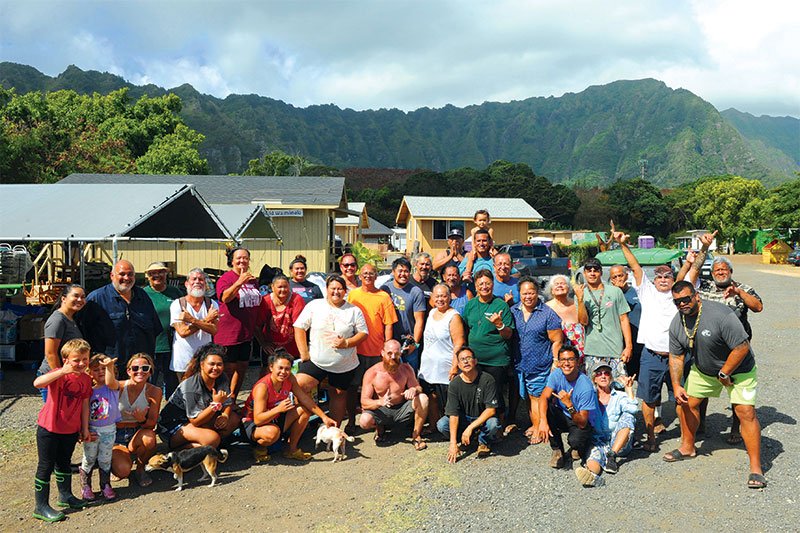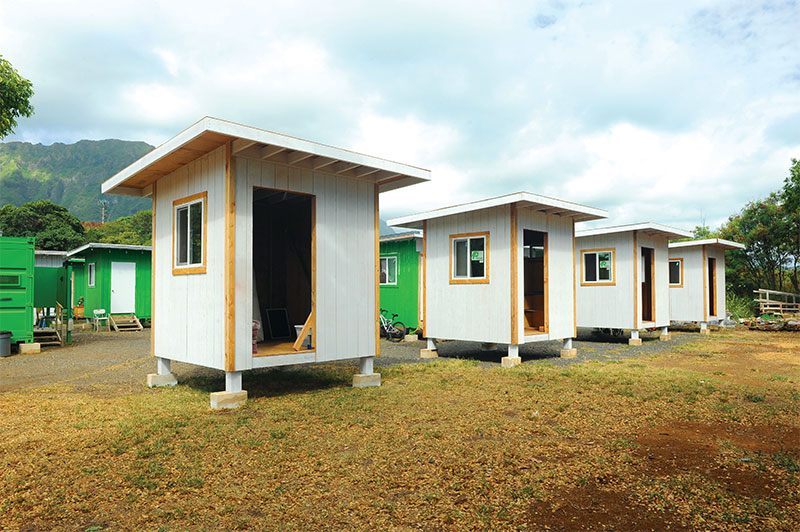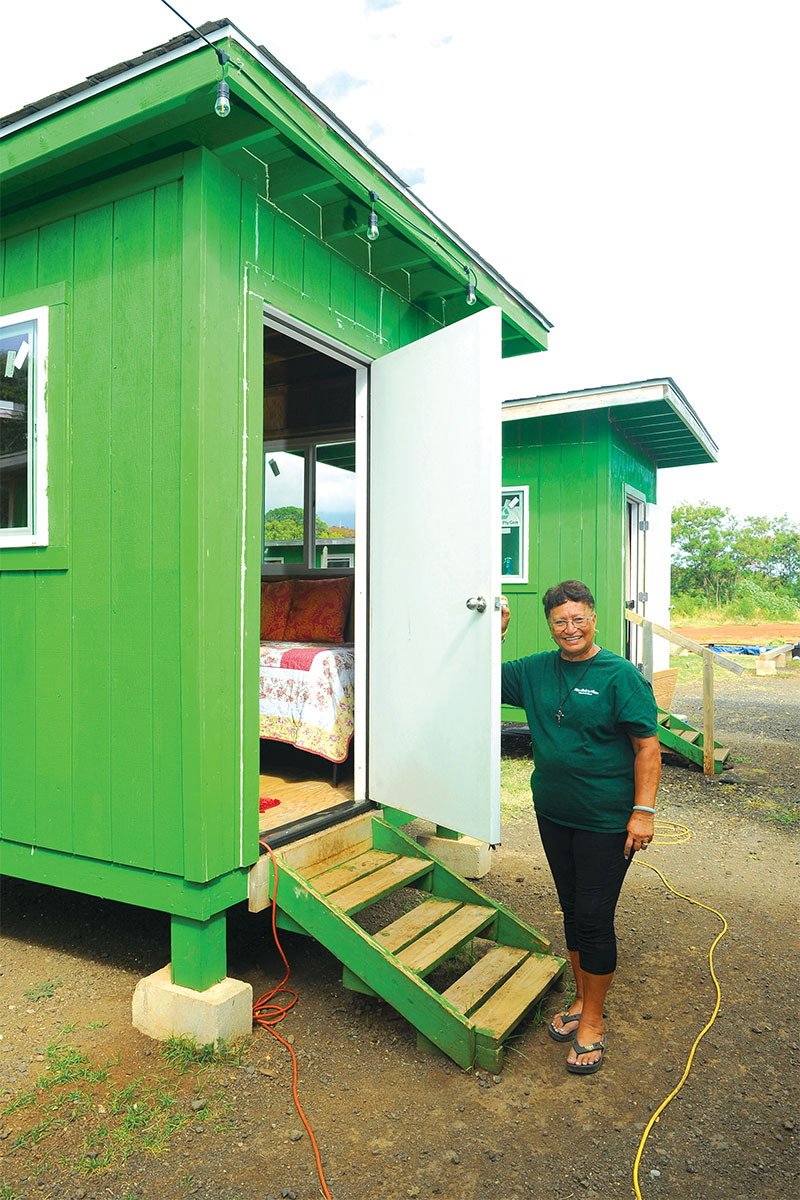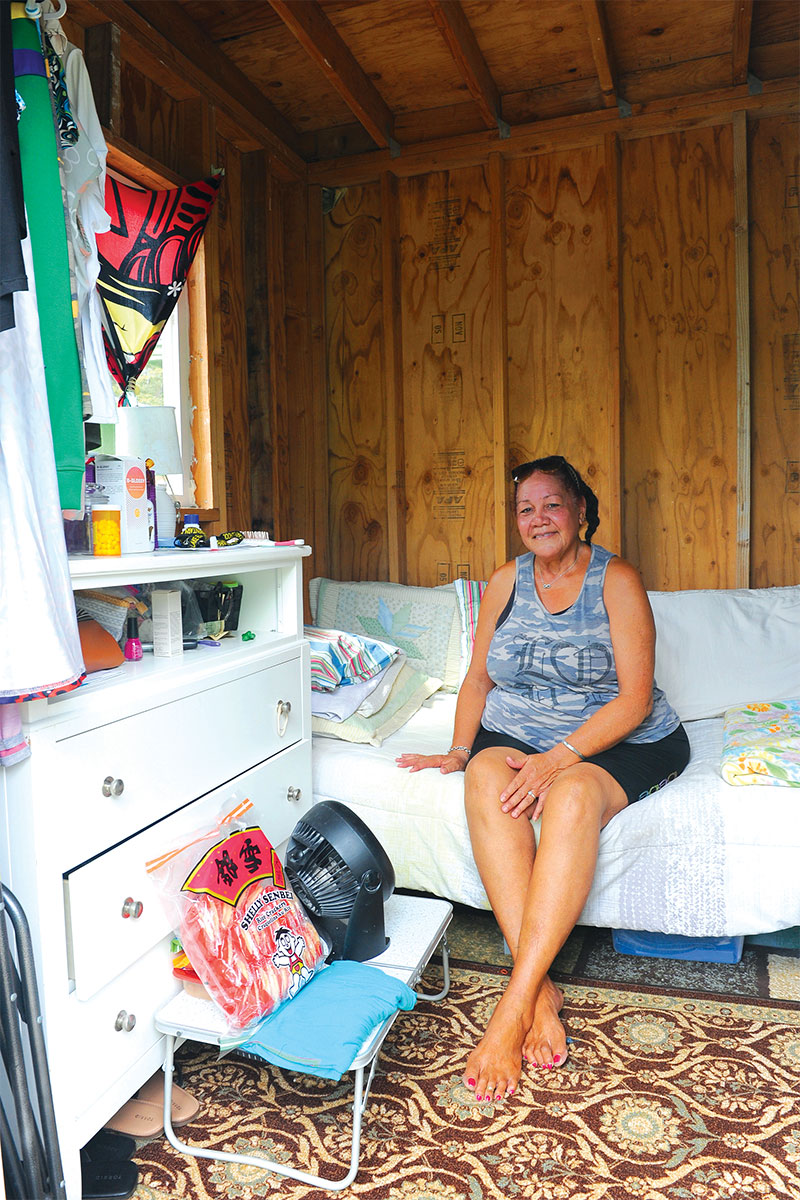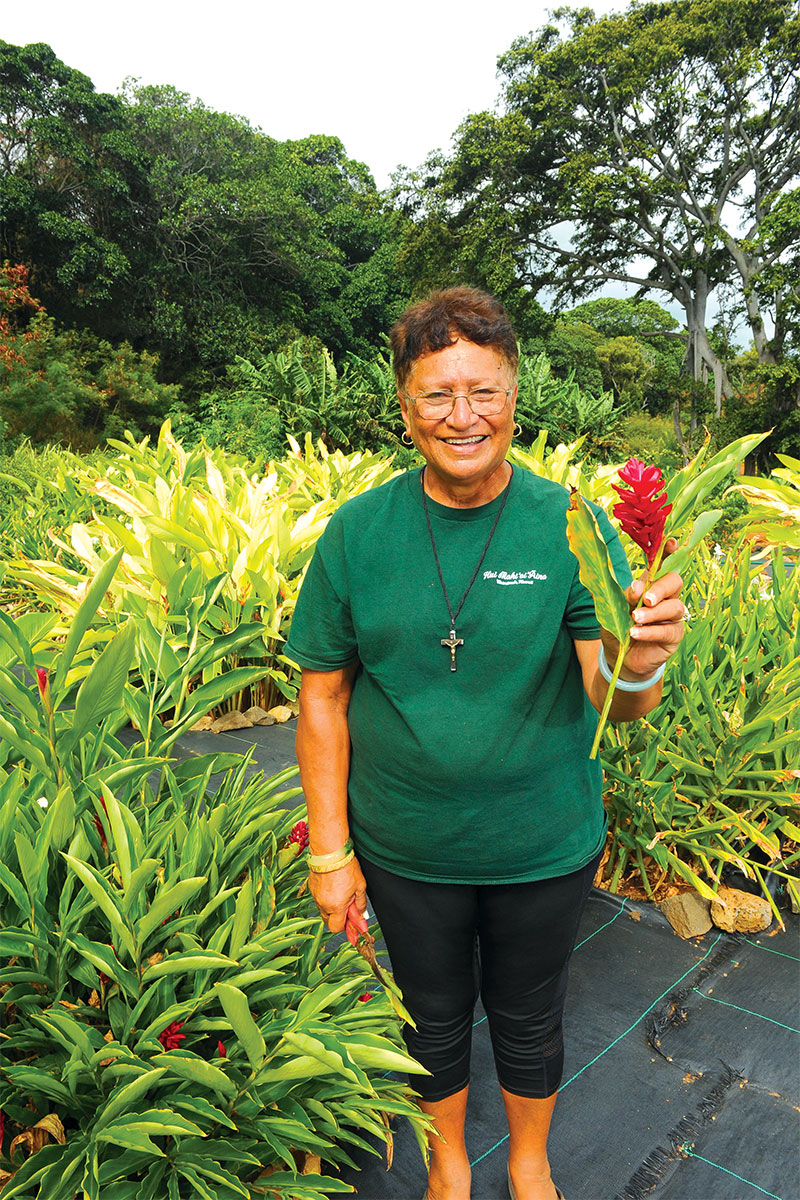Driven To Help
The love Blanche McMillan pours into the houseless at Hui Mahi‘ai ‘Āina is mirrored in the assistance they then lend to the community at large.
In the heart of Waimānalo sits Hui Mahi‘ai ‘Āina, a homeless community program started by Aunty Blanche Mc-Millan. But think of it as merely a homeless encampment and you’ll miss the heart of what makes Hui Mahi‘ai ‘Āina so special.
It’s a place where the broken can become whole, where the unwanted find acceptance, where the discarded find community, where love surpasses all things.
“When they come here, whatever they carry on their back, I normally throw it away, and I make them start a new life,” says McMillan, who serves as CEO. “They start a new beginning. They learn how to love themselves and how to care for the people around them.”
It all starts, she adds, with love. Plain and simple. It’s what drives them to become better people and inspires them to look beyond themselves to help where it’s needed.
“What people don’t realize is all these houseless people, these people who live on the street, they only want love,” says McMillan. “That’s what I show them. I treat them and love them as my own family.”
Her love for others laid the foundation for Hui Mahi‘ai ‘Āina. She started the nonprofit in 2014 as a food bank and community outreach center, but it grew to become a vibrant village during the pandemic.
“I said, ‘I am going to take care of the people; I’m not going to let my people die out there because of this pandemic,’” recalls McMillan, who was born and raised in Waimānalo. “I said I was going to bring them home, and I did.”
Thanks to generous donors and a loan agreement, nine one-person cottages and two single-family homes were constructed on the land in April 2020.
“When I first started, I started with zero,” she notes. “I had nothing. It was all God’s help and the love of the people that surrounded me.”
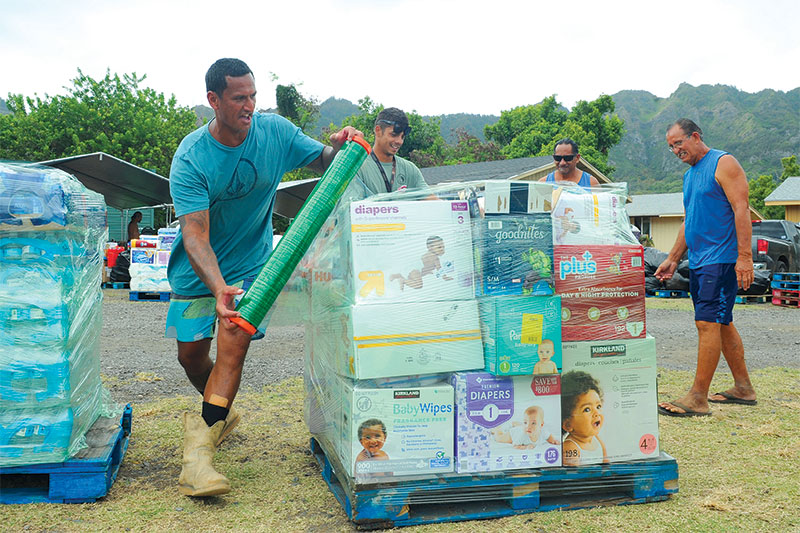
Residents of Hui Mahi‘ai ‘Āina collected more than 200 pallets of donations that were shipped to Maui.
From there, McMillan continued to help people. Through her efforts, Hui Mahi‘ai ‘Āina expanded to 50 homes and 75 people, including 26 children and 15 kūpuna, the oldest being 86.
“I want to keep on growing,” McMillan continues. “My heart was to take care of 300 people, but looking at the homeless people on the outside, I think I can take care of a thousand of them.”
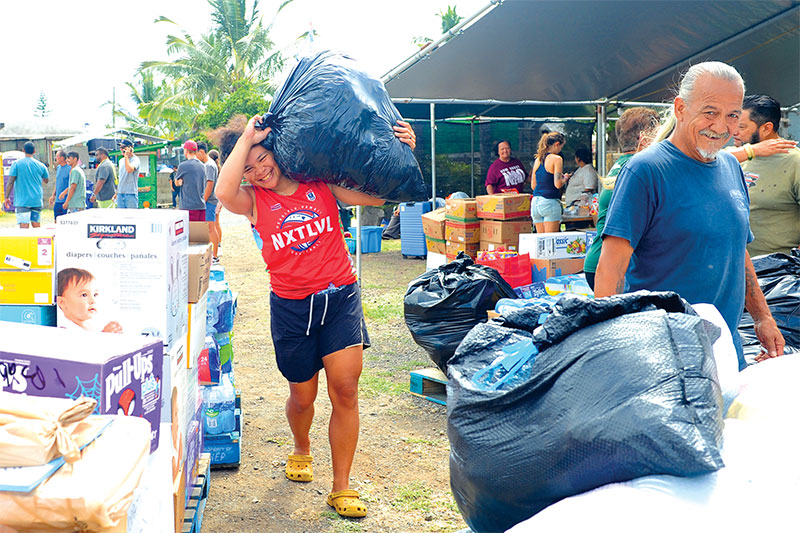
Residents of Hui Mahi‘ai ‘Āina collected more than 200 pallets of donations that were shipped to Maui.
McMillan follows the “old Hawaiian way” — take care of the ‘āina and it’ll take care of you — and engrains that into daily life at Hui Mahi‘ai ‘Āina. Members of the cooperative share duties like cooking, cleaning, security and tending the garden. Electricity on the property is run by generators, and the only things members collectively pay for are water, diesel, propane and portable toilets.
“They’re helpers, they’re workers,” she notes. “I brought back the old Hawaiian way. Mauka to makai, they take care of the land. We all work together.”
This mindset has made for a tight-knit community where folks rely on each other for survival and continued growth — physical, emotional and even spiritual.
“All of our people are with the Lord every Sunday,” says McMillan, who adds that there’s also a Bible study in Hawaiian on Wednesdays. “The reason why I brought them back to God is because they’ve been hiding for years. I want God to show them the light.”
So strongly does she believe in this, that McMillan includes a clause in the resident application: Church attendance is mandatory on Sundays.
“You wouldn’t believe it, but they all kept their word,” she proudly reports.
Love is a recurring theme at Hui Mahi‘ai ‘Āina, and the aloha McMillan pours into the people of Hui Mahi‘ai ‘Āina is reflected in their actions. Most recently, they organized a donation drive that collected more than 200 pallets of goods for the people affected by the Maui wildfires. Hui Mahi‘ai ‘Āina also serves as a community service base for the courthouse, churches, military, corporations and more. This is in addition to hosting weekly food banks on-site and at Waimānalo gym, as well as the recurring village market it puts on.
Those who call Hui Mahi‘ai ‘Āina home benefit from a sense of community. Some stay for only a short while, opting to find their own housing and procure a job. Others, however, choose to stay.
“And they can stay as long as they like. If they want to go to another place, I will help them do that. But those who want to stay here, they will stay here forever as long as they live.”
To that end, Hui Mahi‘ai ‘Āina relies on Waimānalo Health Center, The Institute for Human Services, and a dedicated group of volunteer doctors and nurses available to help anyone with medical ailments. That, combined with a safe space to lay their head at night and a community centered on second chances, is just what residents need to turn their lives around.
“Most of them when they come, they have sores all over their body, they have heart trouble; I mean you talk about they’re dragging and crawling to me,” McMillan explains. “You know what I do? I pick them up from the ground and I hug them and I tell them how much I love them. I take them by the hand, I walk them to their house, I give them their keys and they open the door. When they see that, they turn around and say, ‘You’ve brought me home where I belong.’”
While their circumstances improve upon becoming part of Hui Mahi‘ai ‘Āina, what really changes are their hearts — and that all starts with that four-letter word that McMillan lives by.
“I tell them I love them,” she says. “I will always be there when you fall. I will pick you up and hug you and tell you how much I love you.”
And that sentiment isn’t lost on the people lucky enough to receive her love.
“They become a new person; they finally have someone to love them and treat them as family,” says McMillan. “That’s what makes them more strong, more powerful, more happy.”
Learn more about the organization at huimahiaiaina.org.


